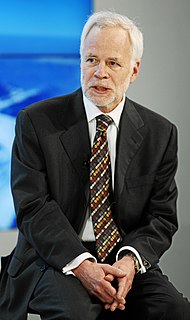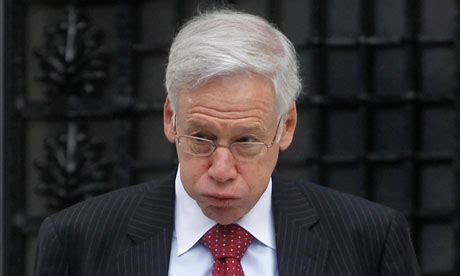A Quote by George Papandreou
But sovereign debt is a wider question not only in Europe but across the globe. While every country is a unique case, I think it's not an issue of countries acting on their own. We need a more coordinated strategy not only in Europe but around the world.
Related Quotes
Over the years, Britain has made her own, unique contribution to Europe. We have provided a haven to those fleeing tyranny and persecution. And in Europe's darkest hour, we helped keep the flame of liberty alight. Across the continent, in silent cemeteries, lie the hundreds of thousands of British servicemen who gave their lives for Europe's freedom.
Industrialized countries have disproportionately more cancers than countries with little or no industry (after adjusting for age and population size). One half of all the world's cancers occur in people living in industrialized countries, even though we are only one-fifth of the world's population. Closely tracking industrialization are breast cancer rates, which are highest in North America and northern Europe, intermediate in southern Europe and Latin America, and lowest in Asia and Africa.
The fact that we're going through a crisis is an opportunity for Europe to be more coordinated and more integrated. We're actually talking about a European Monetary Fund or euro bonds, about guarantees for countries, about economic governance in the European Union. That shows the strength of Europe.
The Turkey deal can only be Plan B. Plan A needs to be a strong Europe that is prepared to defend its external borders on its own. If we do not do that, then we are living in a Europe that is dependent - on other countries, and possibly even on personalities like President Erdogan. And dependency is dangerous.
Italy is the fourth-largest economy in Europe and the eighth-largest economy in the world, and its banking system is collapsing. And Germany is desperate. It must maintain its standard of living. It can only do that with exports and Deutsche Bank is very exposed to Italian debt. But so is the rest of Europe.
No man should be viewed as having more to offer the world than another. We are all equals and every human being has something of value in their composition which makes them unique, just as every country has their own unique resources to share with the world. Never discount somebody based on material wealth, for true wealth is what cannot be seen. Never discount a country by what they can't provide your country, while their resources may benefit other lands in need.
The truth is that we have long had a multi-track Europe with very different objectives. The traditional differences between the north and the south in fiscal and economic policy are far less problematic than those that exist between Eastern and Western Europe. In the south and east, China is steadily gaining more influence, such that a few EU member states no longer dare to make decisions that run counter to Chinese interests. You see it everywhere: China is the only country in the world that has a real geopolitical strategy.
I think that in this globalised world, the local is going to become more and more important - it is a paradox. You see it in Western Europe more and more. Eastern Europe is still coming out of the Soviet uniform cultural era, but this kind of separation and nationalism is very obvious now in Western Europe.











































